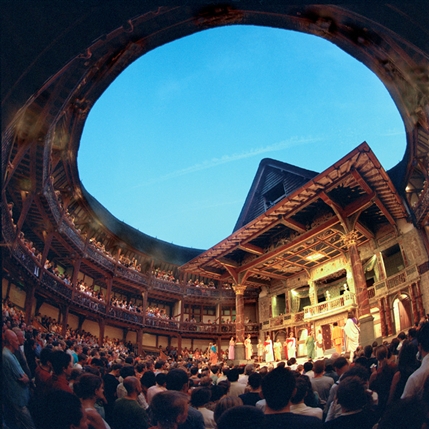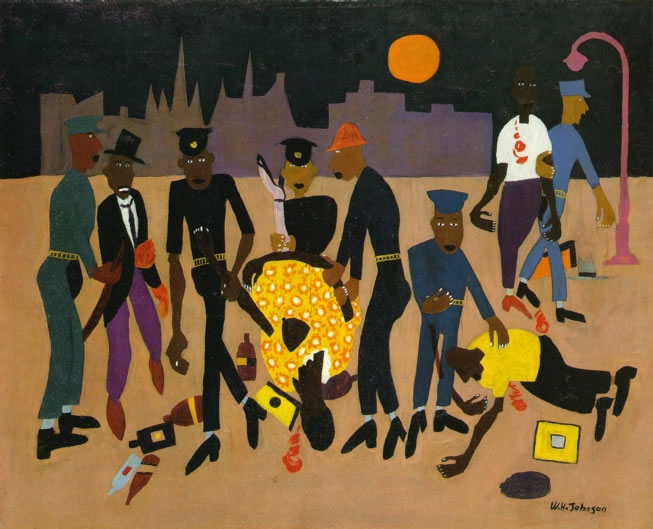
303.9K
Downloads
447
Episodes
New for 2023: Victorian Poetry Scroll back for previous courses on Shakespeare, Eighteenth Century Poetry, Close Reading, Various film genres, Film and Philosophy, the Western Canon, Early Romantics, 17th Century Poetry, etc.
New for 2023: Victorian Poetry Scroll back for previous courses on Shakespeare, Eighteenth Century Poetry, Close Reading, Various film genres, Film and Philosophy, the Western Canon, Early Romantics, 17th Century Poetry, etc.
Episodes

Saturday Feb 09, 2019
Early Romanticism VII -- more Blake
Saturday Feb 09, 2019
Saturday Feb 09, 2019
In particular "The Garden of Love" and "London," "To the Evening Star," and a touch of The Book of Thel

Friday Feb 08, 2019
Friday Feb 08, 2019
Buying and selling based on predictions of what others will buy and sell: Keynesian Beauty Contests (cf. "Family Feud") and what they have to do with narrative interaction. An in class demonstration in which a student wins a dollar! Some discussion of other manipulative games.
NB that previous episode was mistitled as Monday's: It was actually Wednesday's....

Thursday Feb 07, 2019
Imagining Money X Wednesday February 6 2019 -- Merchant of Venice and Ezra Pound
Thursday Feb 07, 2019
Thursday Feb 07, 2019
Functions of money. Ripping a bill in half. A little more on the etymological background of interest as breeding. Usura Canto in Pound, with youtube audio of him reading it. Kinds of wealth in The Merchant of Venice, following James Buchan.

Wednesday Feb 06, 2019
Romanticism VI 2-4-19 Blake's There is no Natural Religion, and some songs of Experience
Wednesday Feb 06, 2019
Wednesday Feb 06, 2019
Some discussion of "There is no Natural Religion" and then some Songs of Experience: "The Chimney Sweeper," the two versions of "Holy Thursday," "The Clod and the Pebble," and -- a Song of Innocence -- "The Little Black Boy."

Tuesday Feb 05, 2019
Imagining Money IX Monday February 4, 2019
Tuesday Feb 05, 2019
Tuesday Feb 05, 2019
Some discussion of the Super Bowl, and of game theory at the end of the game. Then a return to Aristotle on the three functions of money, and on interest -- and the Greek word's etymology as breeding or procreation (from the word τόκος , ὁ, [tokos] = childbirth from (τίκτω [titko]) meaning to give birth, whence also τεχνη, craft, i.e. the art of producing objects, which word Aristotle uses elsewhere in discussing the unmoved mover).

Friday Feb 01, 2019
Imagining Money VIII Thursday January 31 -- Mostly Marx
Friday Feb 01, 2019
Friday Feb 01, 2019
A class where we end up going into the labor theory of value -- average abstract labor time being what produces equilibria among different commodities. We were going to talk about Kawabata, and about interest, but that's TK. We did talk about Aristotle -- and therefore a bit about Adam Smith -- on the functions of actual money: medium of exchange, bookkeeping measure, store of value, and also a bit on how these can be confused with each other.

Thursday Jan 31, 2019
Romanticism, Class V: Mainly on "All Religions Are One"
Thursday Jan 31, 2019
Thursday Jan 31, 2019
This was going to be on "The Songs of Experience" (watch this space), but in order to discuss what Blake meant by the word "experience" we took a look at his 1788 tract "All Religions Are One" (printed just before "The Songs of Innocence"), which led to a long discussion of the dialectic between Plato and Locke and a counter-dialectic in Blake against both Plato and Locke.

Wednesday Jan 30, 2019
Imagining Money VII Wednesday Jan 30 2019
Wednesday Jan 30, 2019
Wednesday Jan 30, 2019
A class that spiraled outwards from a consideration of Chaucer's Pardoner's Tale to Maugham's parable of the appointment in Samara to parables in general, including the strange parable of the talents in Matthew. The ontology of things in the world and death as not a thing in the world (in Chaucer, in Maugham). How treasure or gold is like death -- a catalyst, a vector, something not itself (a marker for a return to Aristotle tomorrow).

Tuesday Jan 29, 2019
Romanticism Class IV: Songs of Innocence
Tuesday Jan 29, 2019
Tuesday Jan 29, 2019
Much on "The Lamb" (and a little on "The Tyger"), "A Cradle Song," "Infant Joy" and the Innocence version of "The Chimney Sweeper." Innocence as privative (like "infant" and "innocuous")-- a contrast to the world as we know it.

Monday Jan 28, 2019
Imagining Money VI 1-28-19
Monday Jan 28, 2019
Monday Jan 28, 2019
A class mainly on Mammon -- in Milton and in Spenser -- though we don't get that far, because we pause for an explanation of The Faerie Queene and of allegory in general -- e.g. Edward Gorey's Innocence, on the Bicycle of Propriety, Carrying the Urn of Reputation Safely over the Abyss of Indiscretion. Hence some talk about the harmony of the virtues in Aristotle -- chastity vs. temperance. Matthew 6:24 quoted -- you cannot serve both God and Mammon.

Sunday Jan 27, 2019
Imagining Money V Thursday Jan 24 2019 -- Midas and money
Sunday Jan 27, 2019
Sunday Jan 27, 2019
Aristotle on Midas, and then Ovid on Midas (Golding's translation), which is the just-so story of how the river Pactolus came to run with gold (or actually electrum), leading to the first coining of money under Croesus, with a little fumbling in class about what it was that Archimedes found bathing (that objects submerged in water displace their own volume).

Saturday Jan 26, 2019
Romanticism, class III: Nurses Songs, Milton
Saturday Jan 26, 2019
Saturday Jan 26, 2019
More on the two versions of the Nurses Song, with some subtle narrative theory applied -- who is or are the real narrators of the two songs? Then back to Paradise Lost: a little history, a little consideration of how it champions the proto-Romantic centrality of human judgment to our sense of the world and of morality. (Luther on Pharaoh type of thing....)

Friday Jan 25, 2019
Imagining Money IV Wednesday Jan 23 2019
Friday Jan 25, 2019
Friday Jan 25, 2019
More Aristotle, on the origin of actual money -- coin of the realm as Gutman will say in The Maltese Falcon (TK) -- and the meaning of the word "tender" in the phrase "legal tender." Polonius's dumb pun on the word. Aristotle, very briefly, on infinity (the unbounded) and its relation to goods and money. Meatloaf's song "Paradise by the dashboard light" naturally comes up, as it most in most classes on Aristotle....

Thursday Jan 24, 2019
Imagining Money III 1-22-19
Thursday Jan 24, 2019
Thursday Jan 24, 2019
Discussion of a couple of Exeter riddles (you can find them on the original handout) and how they connect money to various other social interactions, prostitution in particular. Then we broach Aristotle's Politics.

Wednesday Jan 23, 2019
English Romanticism: Blake, WW, STC second class 1-22-19
Wednesday Jan 23, 2019
Wednesday Jan 23, 2019
Second class: mainly an intro to Paradise Lost, followed by a return to the two versions of Blake's "Nurses Song." Blake's illustrations here.

Tuesday Jan 22, 2019
Imagining Money II 1-17-19
Tuesday Jan 22, 2019
Tuesday Jan 22, 2019
A class mainly on Kay Ryan's poem "Money is a kind of poetry," a riff on Wallace Stevens' line (in his Adagia): "Poetry is a kind of money." The class, of course, is about both. Link to handouts (including this poem) available in previous episode or here.

Sunday Jan 20, 2019
Imagining Money (Literature and Economics) 1-16-19
Sunday Jan 20, 2019
Sunday Jan 20, 2019
This is the first class of a new course called "Imagining Money." You can find a draft syllabus -- an aspirational one, since we'll never get through it all -- here. There are handouts for the first three days: the short passage from Beckett we discuss first, a miscellany of poems and riddles about money, and a selection of passages from Milton, Ovid, and Ambrose Bierce. The syllabus gives you the lines to read from Milton's Paradise Lost, viz. Book 1, ll. 674-751, and Book 8, ll. 1-178. And here is the Kawabata story.

Saturday Jan 19, 2019
English Romanticism: Blake, Wordsworth, Coleridge 1/16/19
Saturday Jan 19, 2019
Saturday Jan 19, 2019
An introductory class for a course on the early Romantics. Today we talked about the oxymoronic title of Lyrical Ballads, more about ballads than about lyrics; about Milton; about Blake's describing him as being of the devil's party without knowing it. Syllabus TK -- watch this space.

Monday May 02, 2016
Soyinka - Death and the King's Horseman (1a-32 = last class)
Monday May 02, 2016
Monday May 02, 2016
Last class of the semester, on Wole Soyinka's Death and the King's Horseman. Compared and contrasted with Achebe's Things Fall Apart, which unlike the play is about the clash of cultures, and what happens when European culture arrives and destroys the cultures it is ignorant of; and with Conrad's Heart of Darkness, which makes African culture a backdrop to European reckoning with its own tragic ontology. Death and the King's Horseman as treating British colonial culture as a catalyst and otherwise a (ridiculous) backdrop to its own concerns, concerns as archaic, as fundamental, and essential as anything to be found in Aeschylus or Shakespeare. By way of long discussions of how we think of the audience as narratee, not as reader; and how we think of plays as having the same kind of hidden narrators as we think of novels as having hidden narratees. Who is the audience, or who are its members, its narratees, who do we think they are, in Death and the King's Horseman?

Tuesday Apr 26, 2016
Print the Legend: The Man Shot Liberty Valance -- 1a - class 31
Tuesday Apr 26, 2016
Tuesday Apr 26, 2016
The one film in the class. "Print the legend," as a commentary on the kinds of movies Ford makes. Flashback and truth in fiction. Showing vs. telling. Who did shoot Liberty? The two scenes of his death. Flashback within flashback. Woody Strode (Pompey). What is he doing in the second scene? Why does it matter?

Sunday Apr 24, 2016
O'Connor -- the Violent Bear it Away (1a-30)
Sunday Apr 24, 2016
Sunday Apr 24, 2016
What this strange book is about, at least in part. Macguffins: baptism and murder. And Free Indirect Discourse, natch. The Protestant vs. the Catholic bible. O'Connor quoting from Douay-Rheims. The relevant passage in Matthew:
[7]And when they went their way, Jesus began to say to the multitudes concerning John: What went you out into the desert to see? a reed shaken with the wind? [8] But what went you out to see? a man clothed in soft garments? Behold they that are clothed in soft garments, are in the houses of kings. [9] But what went you out to see? a prophet? yea I tell you, and more than a prophet. [10] For this is he of whom it is written: Behold I send my angel before thy face, who shall prepare thy way before thee. [11] Amen I say to you, there hath not risen among them that are born of women a greater than John the Baptist: yet he that is the lesser in the kingdom of heaven is greater than he. [12] And from the days of John the Baptist until now, the kingdom of heaven suffereth violence, and the violent bear it away. [13] For all the prophets and the law prophesied until John: [14] And if you will receive it, he is Elias that is to come. [15] He that hath ears to hear, let him hear. [16] But whereunto shall I esteem this generation to be like? It is like to children sitting in the market place. [17] Who crying to their companions say: We have piped to you, and you have not danced: we have lamented, and you have not mourned. [18] For John came neither eating nor drinking; and they say: He hath a devil. [19] The Son of man came eating and drinking, and they say: Behold a man that is a glutton and a wine drinker, a friend of publicans and sinners. And wisdom is justified by her children. [20] Then began he to upbraid the cities wherein were done the most of his miracles, for that they had not done penance.
Matthew, 11: 7-20, in the Douay Rheims Bible

Wednesday Apr 20, 2016
29 -- A class on Waiting for Godot: Godot as MacGuffin
Wednesday Apr 20, 2016
Wednesday Apr 20, 2016
Seeing it as a residue of real drama. Paradramatic elements: what we can know by knowing elements of the script that we wouldn't know on stage. Who is Godot? Who are we meant to think he is? Really an introduction to the play, to how the play makes you think about what it's doing.

Monday Apr 18, 2016
Second and last class on Invisible Man (1a, class 28)
Monday Apr 18, 2016
Monday Apr 18, 2016
Invisible Man and Whitman. What does the last sentence mean? MacGuffins in the novel. Du Bois on the education of Black Men. 1943 riot in Harlem and the end if Invisible Man. William Henry Johnson's "Moon Over Harlem." Moral of Invisible Man: don't use people. Doing so turns them into the kind of people who use people. (Even the Invisible Man does: uses Sibyl for example.)


Wednesday Apr 13, 2016
27a A section that was really a lecture, mainly on Stevens and Whitman
Wednesday Apr 13, 2016
Wednesday Apr 13, 2016
An exhortation to take seriously the passion of Invisible Man, not only its purpose or the perception it comes to; a claim that being able to do this will give a hint at least of similar passions in works whose political contexts are now historical, that is no longer as live to us as #BlackLivesMatter, for example, makes Invisible Man, followed by quick but consecutive readings of Stevens's "The Idea of Order at Key West" and the rest of Whitman's "Out of the Cradle Endlessly Rocking."

Monday Apr 11, 2016
27 - First real class on Invisible Man
Monday Apr 11, 2016
Monday Apr 11, 2016
First real class on Ellison's Invisible Man; some background, Liberty Paints, electroshock, Norton's interest in Jim Trueblood.
